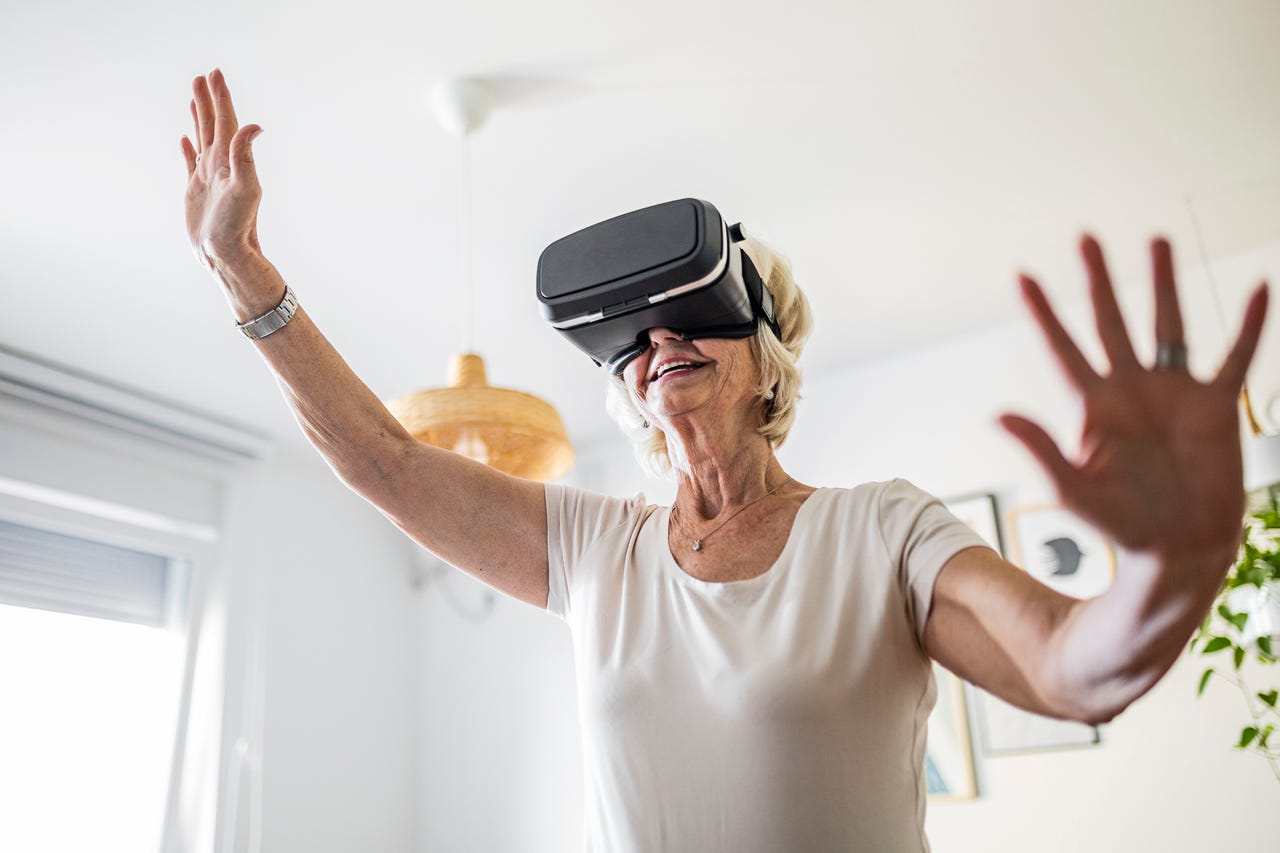
You don’t often expect a Tuesday night to offer you a big surprise, do you?
Tuesday nights are barely a step up from Monday nights, and Monday nights aren’t usually pretty.
But here we were, my wife and I, on a Tuesday night having dinner in a restaurant with one of my friends and a friend of his from out of town. We’d never met her before.
Also: I’ve tried Vision Pro and other top XR headsets and here’s the one most people should buy
Everything was perfectly convivial, for a Tuesday night. We chatted about the usual personal inanities, socio-political gripes, and deeply held feelings about linguine vs. spaghetti.
But then came words from another planet.
Love from a different generation
I don’t know how we got onto the subject, but my friend’s friend — a woman of millennial years — suddenly offered: “I love the metaverse.”
Perhaps your Tuesday nights are different from mine, but if there’s one thing I don’t expect to hear it’s that. Sincerely, I’ve yet to hear anyone tell me they love the metaverse. Which perhaps only suggests I should get out more, find new friends, or perhaps entirely new virtual worlds.
Still, to some ears, the exclamation “I love the metaverse” may feel akin to “Wow, I miss Google Glass” or ” I admire all tech leaders for their limitless humanity.”
So I had to ask what had driven this woman to such sincere passion. Naturally, I assumed she’d communed with some immensely cool nerdy people — in real life — who were all devotees. Naturally, I was grotesquely mistaken.
“My dad’s partner bought some Oculus for her grandkids. They didn’t want it. So she gave it to me to try and I love it,” she said.
Also: The best VR headsets right now (and how Apple Vision Pro stacks up)
Did she say grandkids? Did she say that some teens weren’t interested, but an adult in the prime of her intelligent sentience was? I was a touch bemused.
Why, then, did she love her Oculus so much? (She referred to it for the whole time as her “Oculus.” It’s now the Meta Quest.)
“I love disappearing into it,” she said. “I love exploring all these new worlds and meeting new people there. I love being able to share things with my friends in those worlds.”
She continued to express her uncontrolled enthusiasm, but then I received further evidence.
The following day, my friend sent me a picture of his, well, friend enraptured, masked and clearly experiencing a medium level of nirvana.
Also: The metaverse has virtually disappeared. Here’s why it’s generative AI’s fault
Eyes wide open
This was, of course, something of an eye-opener for me.
I’m not enraptured by anything that squeezes onto my head. I find crash helmets claustrophobic. So the thought of donning a mask to get out of this world isn’t one that lifts me as much as, say, a well-made linguine vongole.
Yet to meet someone with such enthusiasm for her Oculus/Meta mask was a confrontation with a changing reality — one that Apple clearly wishes to capitalize on with its Vision Pro.
Also: I tried Meta’s Quest 3 VR headset and the mixed reality experience was next level
Meta, which committed itself to the metaverse by changing the whole company’s name from Facebook, insists it’s ready for Apple’s incursion into this heady space.
But are there really a lot of people in the metaverse? I always imagined there weren’t too many, but as my colleague David Gewirtz recently reported, the Meta Quest 3 outsold Apple’s AirPods on Black Friday.
Some people — perhaps an increasing number of people — want to get out of this world. For them, the Quest is an everyday adventure to another land, unencumbered by travel plans or severe monetary expenditure.
A Meta Quest 2 can cost as little as $249. It expresses a more basic, Android-like attitude in the face of Apple’s fancy pretension.
But as my friend’s friend described how wearing the headset was not an encumbrance and perfectly punctuated her life, I couldn’t help wondering about the changing world.
The power of disappearance
It’s hard not to consider the power and prevalence of loneliness in this context. The internet made it very tempting to disappear into its entrails and not emerge for many hours. The pandemic exacerbated the feeling of emotional and physical solitary confinement for many.
Why, travel companies are now working harder to create trips that bring lonely people together.
Perhaps the true power of the metaverse is that, as with the best of vacations, your disappearance into it is absolute. Or as absolute as you can make it from wherever you happen to be (or feel) stuck. You put on the mask and you’re gone.
Also: Can AI curb loneliness in older adults? This robot companion is proving it’s possible
Yes, Meta is focusing more on a mixed form of metaverse reality, where your real world is still there but with the (perhaps more exciting) virtual world layered over it. Yet my friend’s friend insisted she loved it precisely because of its all-enveloping nature. She doesn’t want her reality mixed. She wants to be out of it.
I might worry that many people are getting far more pleasure and affirmation in the digital world than they get in the so-called real one, but my friend’s friend simply loves her Quest. To her, it offers a different life for a while.
Who am I to wonder what the (real) world is coming to when my friend’s friend happily says: “Grandma loves her Oculus too.”?




















